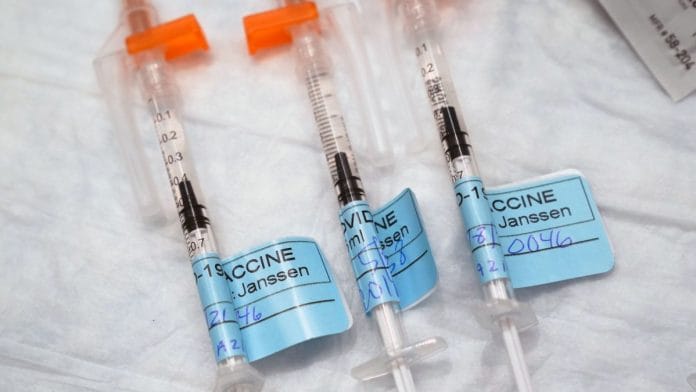New York: Johnson & Johnson said that its single-shot coronavirus vaccine neutralizes the fast-spreading Delta variant and provides durable protection against infection more broadly.
The company said in a statement Thursday that recipients of its vaccine produced strong neutralizing antibodies over the course of at least eight months against all variants including Delta, which was first seen in India and has been spreading around the globe.
Delta is expected to become the dominant strain in the U.S. in the coming weeks, according to the Centers for Disease Control and Prevention. The J&J shot provides less protection initially than messenger RNA vaccines from Pfizer Inc. and Moderna Inc., and experts have been discussing whether some people may need booster shots to keep the virus at bay long-term.
“We’re extremely happy, actually, and confident there’s no need for the booster at the moment and we’re protected against different strains,” said Johan Van Hoof, J&J’s global head of infectious diseases and vaccines, in an interview.
The shot neutralized the Delta variant within 29 days of a first dose, and protection matured and improved over time, the company said.
With the latest data in hand, Van Hoof said J&J doesn’t believe people who have been given its vaccine should need a booster within a year of having gotten it. “And if a boost is needed,” he said, “we don’t think we’ll need to change the formulation.”
Scientists and some vaccine manufacturers have been crafting updated versions of their shots to directly target the emerging variants, which have proved to be significantly more transmissible than the original virus that first emerged in Wuhan, China, in late 2019.
The continued evolution of the pathogen, however, is creating an ever-moving target, leading some to evaluate whether additional doses of existing immunizations may provide more protection.
The findings J&J disclosed Thursday were from two studies.
The company evaluated the blood samples of eight participants in its late-stage clinical trial of the vaccine to assess neutralizing antibodies produced against the Delta variant. Dan Barouch of Beth Israel Deaconess Medical Center evaluated the durability of the immune response in 20 participants of an early-stage vaccine study.
More robust results will be published in bioRxiv, an online research depository, the company said.
Two-shot regimen
Data released by the company showed antibody counts, known as titres, were substantially higher in response to the Delta variant than the beta variant first detected in South Africa.
J&J said a second dose of its vaccine is known to increase a person’s antibody count. The company plans to report efficacy data from a late-stage trial of a two-shot regimen at the end of August, Van Hoof said.
The company is also studying its vaccine’s ability to create T cells, another gauge of its protective power. The shot produced increasing T cell immunity against the virus and its variants over eight months, according to Van Hoof.
J&J’s shot has struggled to get broad traction amid production problems and after a brief pause in use as regulators investigated reports that some people suffered dangerous blood clots after receiving it. The pause was lifted after 10 days on April 23. –Bloomberg
Also read: In next step to bringing its Covid shot to India, J&J moves to validate manufacturing process






